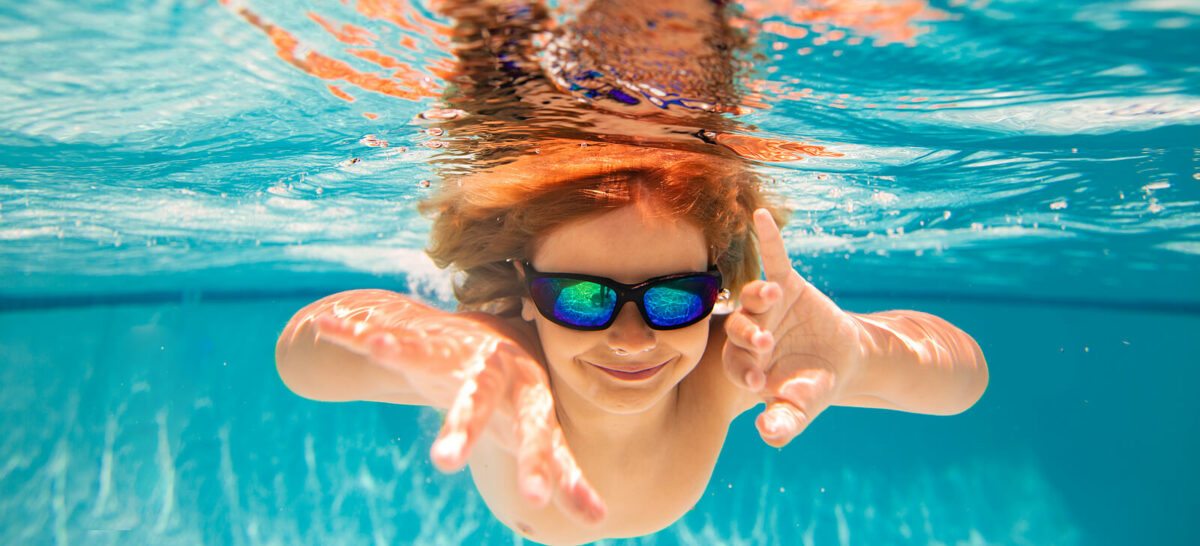Swimmer’s ear, also known as otitis externa, is an infection of the outer ear canal. This condition often occurs when water remains trapped in the ear, creating a moist environment where bacteria and fungi can thrive. The symptoms of swimmer’s ear include itching, redness, discomfort, and, in some cases, hearing loss. Fortunately, there are effective ways to prevent this condition and enjoy your swim.
Use Earplugs or Swim Caps and Dry Your Ears Thoroughly
Wearing earplugs or swim caps can effectively keep water out of your ears while swimming. Silicone earplugs are a popular choice as they mold to the shape of your ear, creating a watertight seal. Swim caps that cover the ears can also provide extra protection. Combining both earplugs and a swim cap ensures maximum prevention against water entering the ear canals.
After swimming, gently use a soft towel to wipe the outer part of your ears after you get out of the water. Tilting your head to each side can help drain any water trapped in the ear canals. You can also use a hairdryer on a low and cool setting to dry your ears. Hold the hairdryer at least a foot away from your ear to avoid causing any discomfort or injury.
Avoid Inserting Objects into the Ear
Many people are tempted to use cotton swabs, bobby pins, or other objects to clean their ears. However, inserting objects into the ear can push earwax and water further into the ear canal, increasing the risk of infection. Instead, stick to external cleaning with a soft cloth, and let your ears naturally expel any excess water or wax. If you experience discomfort or suspect a blockage, it’s crucial to consult a healthcare professional for a proper hearing health exam.
Apply Ear Drops After Swimming
Over-the-counter ear drops can help reduce the risk of swimmer’s ear by drying out any water trapped in the ear canal. These drops usually contain a mixture of alcohol and acetic acid, which not only helps dry the ears but also creates an environment less favorable for bacterial and fungal growth. Follow the instructions on the ear drops and use them immediately after swimming. If you have any concerns, consult a healthcare provider before using ear drops.
Maintain Good Ear Hygiene
To maintain good hygiene, avoid excessively using cotton swabs and other objects that can irritate the ear canal. Instead, gently clean the outer ear with a washcloth. Also, ensure to rinse your ears with clean, fresh water after swimming in lakes, rivers, or the ocean to wash away any potential contaminants.
Recognize Early Signs
Recognizing the early signs of swimmer’s ear can help you take prompt action to prevent the condition from worsening. Symptoms such as itching, mild discomfort, or a sensation of fullness in the ear can indicate the beginning of an infection. At the first sign of these symptoms, use preventive measures such as ear drops and keep your ears dry. If symptoms persist or worsen, seek professional medical advice.
Schedule Regular Hearing Health Exams
Regular hearing health exams allow us to monitor your ear health, identify potential problems early, and provide appropriate treatment. If you swim frequently or have a history of ear infections, please let us know. This information can guide us to offer personalized advice and preventive measures to protect your hearing.
Boost Your Immune System
A strong immune system can help prevent infections, including swimmer’s ear. Maintain a healthy diet rich in vitamins and minerals to support your immune health. Staying hydrated, getting regular exercise, and ensuring enough rest are all important factors in keeping your immune system strong. Caring for your overall health reduces the likelihood of developing infections that can affect your ears.
Avoid Swimming in Contaminated Water
Swimming in contaminated water sources, such as polluted lakes or poorly maintained pools, increases the risk of swimmer’s ear. Always choose clean, well-maintained swimming facilities, and avoid swimming in water that appears dirty or has an unusual odor. If you are unsure about the water quality, it’s better to avoid swimming in it to prevent any potential ear infections. Contact us today!

